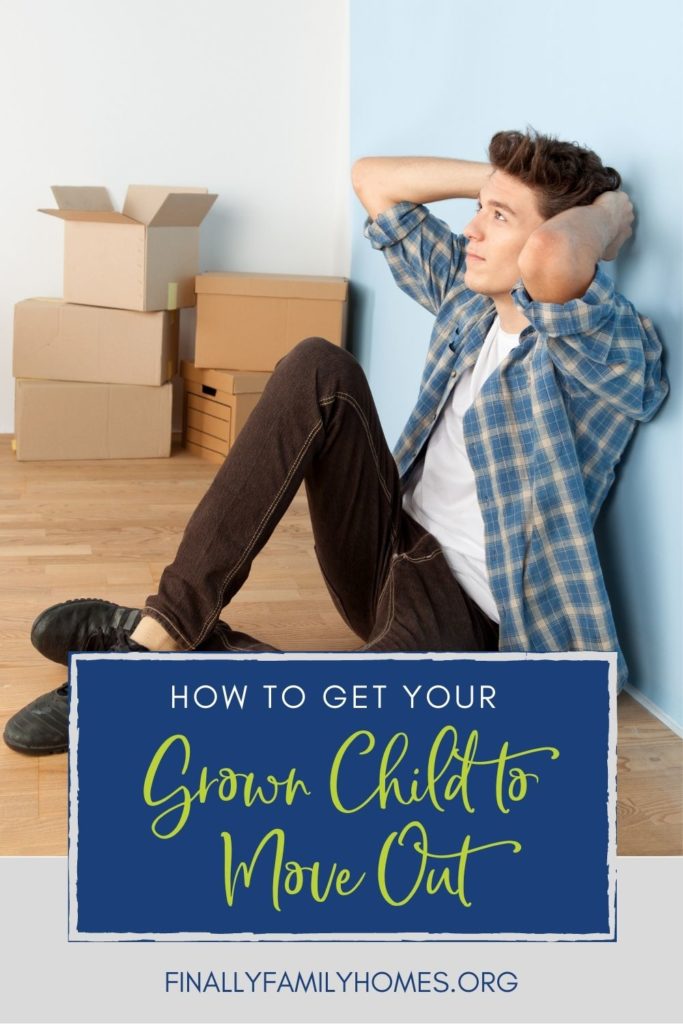Moving Out at 18 – When Should A Child Move Out?
Are you wondering if it’s the right time for your grown child to move out?. Maybe, you believe your kid is old enough and you’re ready to toss your little bird out of the nest and let ’em fly, but you’re feeling unsure. Then you’re at the right place! We’ve put together some guidance to answer when should a child move out and Is moving out at 18 the best age to move out?
Whether they are headed to college or not, it’s a huge adjustment for all parties involved. An argument could be made that moving off to college is more often a soft transition. College kids tend to get more continued help from their parents and school. Nevertheless, such a huge life change can be emotionally challenging, even if everyone seems to be ready for it.
When Should A Child Move Out?
These days it’s no longer as common to move out at 18. It used to be the norm to move out after high school. And legally, your kids aren’t entitled to live with you past 18 years old.
But according to Time Magazine, you may want to consider letting your kid stay longer. The idea is that allowing them to stay will “help them make the most out of the financial breathing room you’re providing.”
A May 2016 Pew survey indicated that 18-34 year olds are doing just that. “A record 32 percent of young adults live with their parents.
For the first time in more than 75 years, living in Motel Mom is the most common kind of living arrangement.”
In fact, according to the Pew survey, living with a parent became the most common young adult living situation in 2016 for the first time on record! A luxury that aged out foster youth, don’t have.
Moving Out at 18
If you’re looking for a good age to move out, start with 18 or whatever age your child graduates high school. Ending high school and going off to a career or college is a good goal to set. You can be flexible as the time approaches if needed, but it’s important to be clear about expectations ahead of time.

This post contains affiliate links. When you shop through links on our page, we receive a small commission to support youth in need at no extra charge to you. You can read our full affiliate disclosure here.
When Should A Child Move Out?
If your child is disrespectful to you or your house, wasting money, and just sticking around because they’re lazy, it’s probably time to start them on their way out the door.
It really depends on the circumstances and your relationship. If your adult child is respectful, helpful, and contributing or even necessary to help keep your household afloat, it’s OK to let them stay a little longer.
Regardless, there’s something to be said for letting your kid struggle. Sometimes kids don’t want to move out because they like the free food, the nice house, and all the perks that come with the years of hard work you put in to get there. Starting out on your own should be a step down in a standard of living, that’s just reality.
Can a parent kick a out an 18 year old legally?
Hopefully, you can come to an amicable resolution, without legal help. You don’t want to end up like these parents, whose unemployed son was a 30-year-old poster child for lazy adults living with their parents. He wasn’t contributing and refused to leave until they sued to evict him.
Do be aware that in some states, after 18, your child becomes a tenant and has tenant protections. It’s not as easy as just telling them to go.
In the above story, the parents won and the son was evicted. So precedence may be on your side, legally. With help from the tips below, hopefully, you won’t have to evict your child out of the house.
How to Deal with the Empty Nest
Maybe it’s not just them, it could be that you are the one having a hard time letting go and want to keep them around for as long as you can. It’s understandable, this change is hard for parents, too. But moving out and becoming financially independent is part of your child’s journey to becoming a successful adult.
If you are getting the sense that maybe you are the one keeping your little birdie in the nest, it may be helpful to check out the following books that can help you feel good about letting go.
Setting Boundaries with Your Adult Children: Six Steps to Hope and Healing for Struggling Parents.
Author Allison Bottke shares her tough-love approach to parenting adult children to set you free from the repeated pain of your adult child’s broken promises,
On the other hand, maybe you’ve tried all you could. Perhaps you want them to go and you feel you’ve done everything you can. Maybe you are at your wit’s end. Allison has also been there.
You may also want to consider one of her other books When Our Grown Kids Disappoint Us which gives guidance for coping when the dreams you had for your children clash with reality.
She offers a strategy for when your smart, capable “adultolescents” won’t leave home or come boomeranging back.
5 Steps to Get Your Grown Child Out of the House
Helping your grown child move out successfully requires some preparation. There’s a lot you can do to ease the transition with some advanced planning.

Step 1. Start The Conversation Early
Ideally, you’ll have begun setting the stage years in advance saying things like..
“When you finish high school and it’s time to move out…”
or
“When you turn 18 and foster care ends…”
Discuss where they might like to live, how they will pay rent and bills. Help them to visualize and begin the mental preparation for moving out on their own. Achieving any goal starts with being clear about what the outcome will look like.
Sell the Advantages of Moving Out
If you are picking up on some hesitations, help your kid to list the advantages of living on their own. Pepper your conversations with these selling points too.
“When you have your own place, you can decorate it like that.”
“You are welcome to stay up as late as you want when you have your own place…”
Keep the Conversation Going
A conversation is more than you talking and selling, it’s listening. Ask questions and listen without judging or giving advice. Sometimes kids just need to work things out themselves. Do what you can to make it easy for them to talk to you.
Don’t let it drop altogether, however. Not talking about moving out may give your adult child the impression you’ve changed your mind or that it’s not important.

Step 2. Gather Essential Documents
The next thing you can do to prepare is to gather all of the documentation your child will need to do the “grown-up” things in life. They’ll need to have security and access around such things as their social security card, birth certificate, and more. They’ll likely need guidance on how to organize and safely store their important documents.
It can take a while to obtain any missing vital documents. So it is advisable to start the process of gathering their important documents several months in advance of the move-out date.
Step 3. Find Affordable Housing
To increase the odds when moving out, help your child find an affordable first place to live. It ought to be a “move down” from your house. It took you a long time to get where you are today. It’s a more valuable life lesson to learn to live within your means than to start off independence struggling to maintain a lifestyle you can’t afford.
Don’t just pick a place out for them. Include them in the search process. Then, when it’s time for them to move again, they will know precisely how to do it themselves.
Step 4. Set Up A Budget
Steps 3 and 4 could be done in either order. But usually, an area will dictate what your minimum rent will be. So it makes sense to start the search first to get a general idea of what reasonably affordable rent is, then help your child build a budget around that.
For instance, in Los Angeles, you’ll be hard-pressed to find a shared bedroom for $500 a month, a room all by yourself will cost you a cool $1,000 and a one-room condo hits at around $2,000. But in rural Louisiana, you might be able to find a small house for $500 or less.
Don’t forget to budget for the bills that go along with living independently, such as electricity, cable, gas, and water. And even if they are on a shared cell phone plan with you, it’s time for them to pony up for their part.
12 Cheap But Awesome Gifts For College Students
Step 5. Figure Out Transportation
These days young adults are not only moving out later but driving later and later. According to statsista.com, only “61 percent of 18-year-olds in the U.S. had a driver’s license in 2018, compared to 80.4 percent in 1983.”
For foster youth, the numbers are even more extreme. There are no national statistics, but this article about foster youth in Florida indicates less than 3% of foster youth have their driver’s license by 18.
Factor in making essential trips, like traveling to a job, getting groceries, or getting to and from school. Getting a driver’s license and a car might be an essential part of getting around. Maybe your child needs to learn how to navigate public transit, bike trails, or learn how to use uber.
Some Final Thoughts on Moving Out at 18
Getting your grown child to move out may require a great deal more than what is covered here. Every family is unique and every situation has its nuances.
This article by NYU Child & Adolescent Psychology provides some great tips for helping parents and kids manage the psychological impact of transitioning to college.
Whatever the case, helping your child learn how to succeed in life will improve the odds that they move out successfully and stay independent.
Need more help getting your young adult to move forward in life? You’ll want to read:
Great Gifts for College Students









